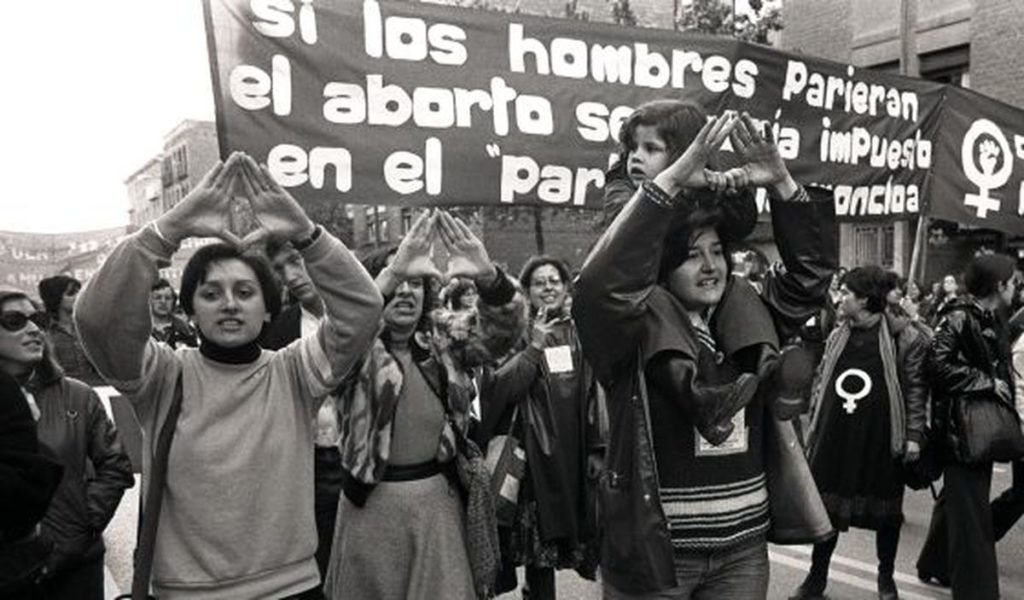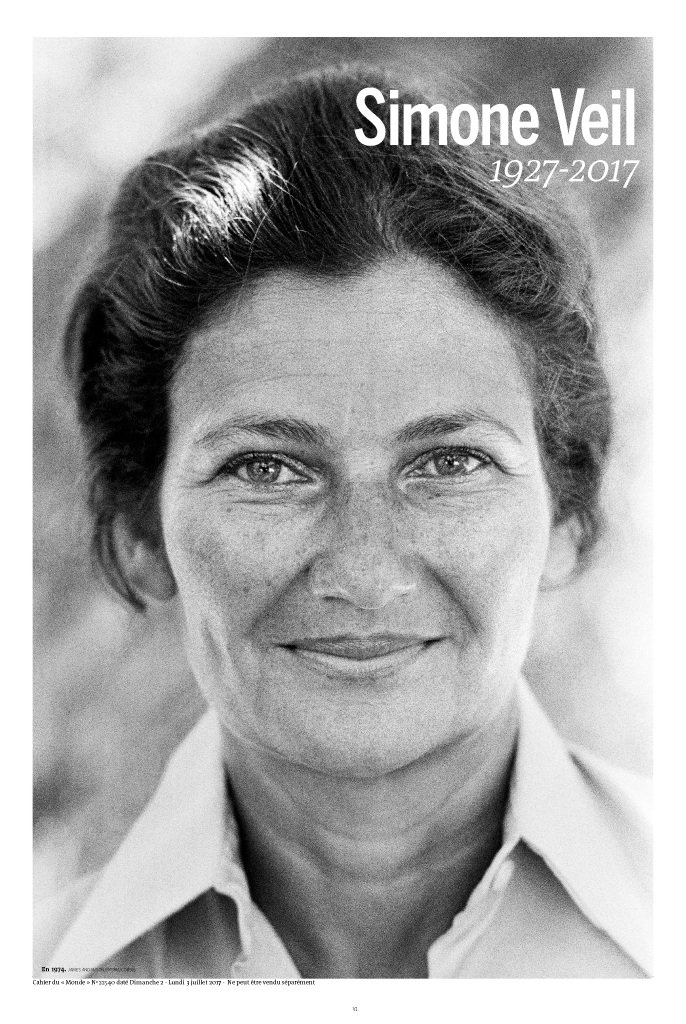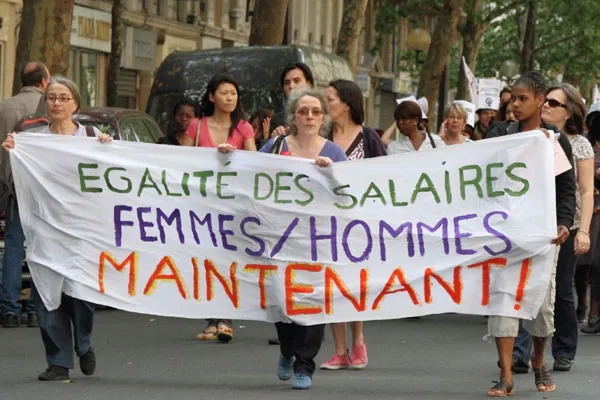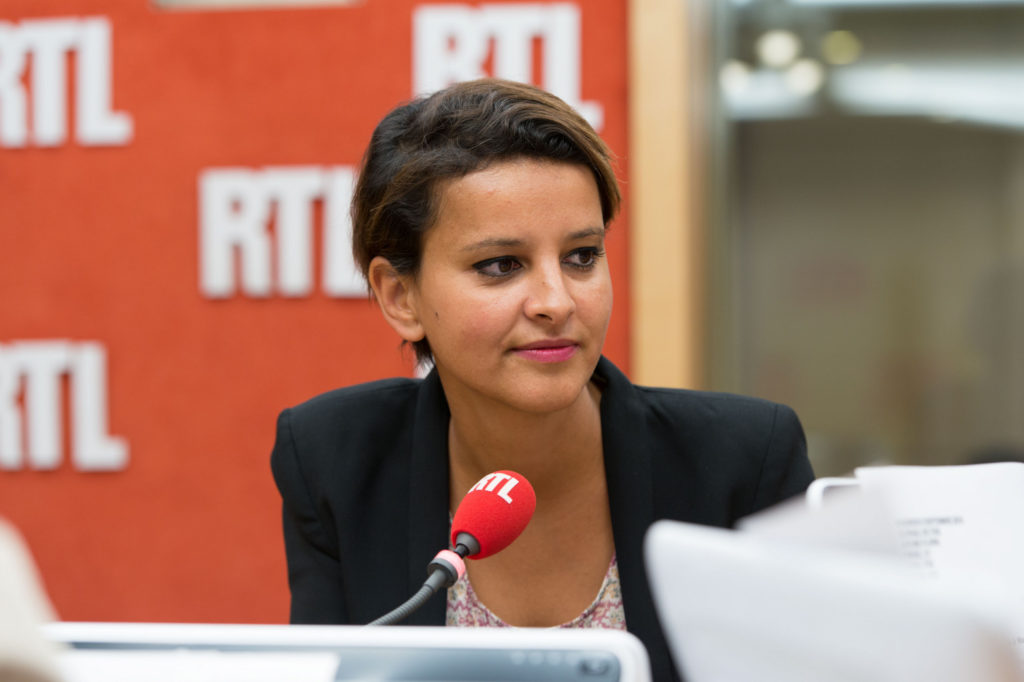
A protest calling for the legalization of abortion, Madrid 1978
On Thursday, Spain’s Congress passed laws, some groundbreaking, that expand the rights and well-being of women, transgender people, and everyone. First, Spain became the first country in Europe to entitle workers to menstrual leave. Second, Spain revised its laws concerning abortion. Under the new law, 16- and 17-year-olds no longer need parental consent to undergo an abortion. The new law further enshrines the right access to abortion in public hospitals. Currently the overwhelming number of abortions take place in private hospitals because state hospital doctors refuse to perform them, claiming religious objection. Period products will now be offered, free, in schools and prisons; hormonal contraceptives and the morning after pill will be offered, free, in public health centers. Third, Spain widened transgender rights. Under the new law, anyone older than 16 can change their legally registered gender without any medical supervision. With parental consent, 14- to 16-year-olds can change their legally registered gender. 12- and 13-year-olds will need a judge’s authorization. No one will be required to prove gender dysphoria. Fourth, another new law bans the use of `conversion therapy’ for LGBTQIA+ people. Finally, a fifth law provides state support for lesbians and single women seeking IVF treatment. The new laws also expanded sex education across the educational landscape. When these laws were all passed, Irene Montero, Equality Minister and member of the Unidas Podemos party, said, “I am well aware that the road does not end here.” There’s more to come. We make the road by walking.
Individually, each of these laws is a major step, and, as always, the result of years of struggle and organizing. Taken together, they offer a glimpse of a world filled with hope that begins with and always insists on the full and unquestionable humanity of every individual and group. As Montero noted, when discussing the transgender legislation, “This is a law that recognizes trans people’s right to freely decide their gender identity. It stops trans realities being treated as abnormalities. Trans people aren’t sick people; they’re people – full stop. They are who they are – full stop. Trans women are women – full stop. From today, the state recognizes that.”
While Spain’s menstrual leave law is the first in Europe, it’s not the first anywhere. Japan, Indonesia, Zambiahave passed similar laws, with varying effects. Likewise, Argentina recognized transgender rights in 2012, and Denmark followed suit in 2014. The point is not which came first but rather that the community of countries widening, rather than further restricting rights, is growing, thanks to Spain’s actions this week. Love is love, people are people, humans are humans, women are women. Full stop.

(By Dan Moshenberg)
(Photo Credit 1: Chema Conesa / El País) (Image Credit: Barbara Kruger / The Broad)

 In France, feminists and humanists are mourning Simone Veil, the emblematic woman who in 1975 presented and defended her abortion bill in the almost exclusively masculine French parliament.
In France, feminists and humanists are mourning Simone Veil, the emblematic woman who in 1975 presented and defended her abortion bill in the almost exclusively masculine French parliament.
 ’s first position in government was as Minister of Women’s Rights, in Francois Hollande’s administration. She became only the second Minister of Women’s Rights ever in France. The first, Yvette Roudy, served under President Mitterrand in the 1980s. Najat Vallaud Belkacem became the first woman Minister of National Education, her current position. We met her in her office to discuss what has to be defended and improved in the realm of gender equality and women’s rights in this period of electoral uncertainty.
’s first position in government was as Minister of Women’s Rights, in Francois Hollande’s administration. She became only the second Minister of Women’s Rights ever in France. The first, Yvette Roudy, served under President Mitterrand in the 1980s. Najat Vallaud Belkacem became the first woman Minister of National Education, her current position. We met her in her office to discuss what has to be defended and improved in the realm of gender equality and women’s rights in this period of electoral uncertainty.